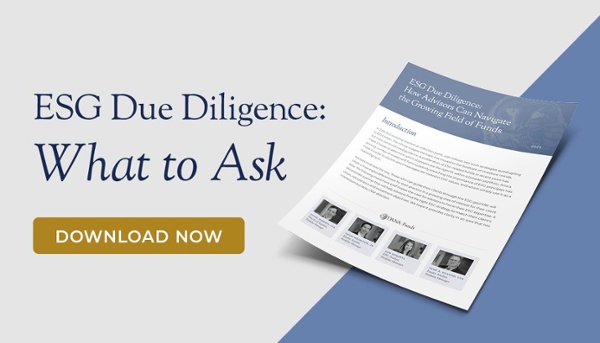One Year Lookback: Reflections on Operating Through the Pandemic
It’s now been a year since COVID-19 shuttered many businesses, forced stay-at-home orders for Americans, and upended every sense of normalcy. As we cross that one-year anniversary, Dana Investment CEO Mark Mirsberger reflected on the year, what it meant for asset management businesses, and what it might mean going forward.
How did Dana first handle the news that offices were closing?
Dana was one of the few businesses deemed essential, so we knew we wanted to keep our offices open and functional, but also be thoughtful about the health and safety of our employees. We decided to have one person per department in the office, and of course excluded anyone who was at risk from a health standpoint or who had families with compromised health or who had younger children at home. Luckily, we had always allowed for flexibility in working remotely, especially for people with longer commutes, so we were well positioned from a technology standpoint.
In the early months, how did remote working go?
It really drove home the fact that culture matters. The challenge with remote working is that you have to trust people. There’s honestly little monitoring you can do. I believe in our people, and most of us have been here a very long time. Their dedication showed in those early months, when it would have been easy to let things go.
What’s interesting is that we saw communication pick up in several aspects. Besides increased use of social media, group chats, and group emails, we saw our weekly Monday morning officer meetings increase from about 35 minutes before the pandemic to well over an hour since more employees have been remote. Humans are social beings and the desire to connect and socialize with co-workers has been very important.
What are some of the more out-of-the-box memories you have about the unusual work circumstances of the past year?
Our virtual holiday party and our internship program. As part of our year-end party, we sent all employees a care package including a board game to play with their family. Trying to play the new game virtually with over 30 employees was quite memorable. Also, as we couldn’t have interns in the office like prior years, we pivoted and virtually hosted a group from Notre Dame and UW Wisconsin business schools. Engaging them in a remote setting and then watching their in-depth reviews of the electric vehicle industry via virtual personalized and creative presentations was very entertaining and enlightening.
What accomplishments are you most proud of?
First and foremost, our ability to stay connected with clients. We’ve increased communication with both existing and potential clients. When there are significant dislocations in the market like we experienced in February and March of 2020, it’s imperative to keep clients looking forward. I’m proud to say that we were able to help the vast majority of our clients stay invested through the downturn and recovery.
I’m also proud of how our investment team rapidly pivoted to take advantage of the market dislocation. They were quick to digest the significance and relevance of the pandemic, and analyze it across industries.
How did your investment process help?
Having a strong investment process provides investors with a compass to help navigate markets when they are volatile. Many investors don’t have a disciplined process, and this causes them to make poor decisions in volatile times. Our time-tested investment process had us fully invested when markets bottomed, and it kept us well diversified in all sectors, ensuring we had exposure to battered cyclical sectors, such as financial or energy, when they started to recover. Our strong relative value discipline also focused our research on high-quality companies, and it helped us avoid the most speculative, over-priced stocks currently under pressure.
When things return to a more normal work environment, what will the pandemic have changed permanently?
I think most companies will have more flexible workplace policies. Working remote will also be more common. The latter change has both benefits and drawbacks. I think that working remotely helps provide a better work/life balance, which is important to Dana. But I do think companies lose a little bit of the creativity and dynamism when people can’t huddle in a room together and walk across the hall to talk to someone when they have an idea. Fortunately, we have an experienced team and a very strong culture to help guide us; I worry about young employees and companies that don’t have such a strong environment.



